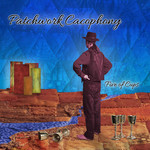Reading Music
I can’t read music. Well, actually that’s not quite true. I’ve passed my sight-reading in my piano exams and I do occasionally work through a score when I want to learn something specific note for note, so obviously I must be able to read to some extent. Perhaps it’s fairer to say that normally I choose to believe that I can’t really read music.
The truth is that I have always been so much better at learning by ear that being asked to read music has always felt like hobbling me. In addition, playing by ear naturally leads into improvisation and composition in a way that strict reading doesn’t, so it suits me to think of it as a more creative way of making music. there are times when it would be convenient to be able to read well, and it would certainly open up possibilities in the sort of session work and gigs where you don’t get the luxury of practicing an arrangement beforehand.
These things would be nice, but they have never been sufficient motivation for me to learn to read. Recently though, I’ve added another couple of items to my “Why I should learn to read music,” list.
The first is for “choir” arrangements. Anyone who’s listened to much of my work will have noticed I have a penchant for rather large (some may say over the top) backing vocal and choral arrangments. Normally I work these out by a combination of sitting at a piano and by ear at the mic. The problem that sometimes arises in particularly dense arrangements is that the when standing at the mic I can sometimes be distracted from the line I should be singing by the one that sounds right at the time, or by reprising part of one of the lines I’ve just recorded. There would be a big advantage to scoring out the parts and sight-singing them so that I could confidently stick to the line that will work as part of the whole, even when it sounds wrong in isolation, or with only some of the other parts in place.
The other and most recent situation is in recording a piece which is provisionally titled Brinkmanship. I know the piano part inside out, but I’ve been working on getting the drums down. This piece is in so many different time signatures, changing every bar in some places, and the parts are sufficiently “written” rather than improvised, that it’s been a real challenge to record. Not only is it the hardest thing I’ve written for drums in terms of sheer technical playing, it’s also hard to remember which bit is about to come next, where the extra rests or beats are and so on. It occurred to me several times that if I had been able to score it out, I would have reduced the difficulty of actually playing it right by removing the load on my memory. Better still, I could have given it to some one else to record and run away…
It seems counter-intuitive at first to me to be considering learning to read and write music score for the sole purpose of playing something I’ve written myself, but I am certainly starting to see the advantages.
Tags: brinkmanship, choir, composition|Flattr this!

